<< Previous | Displaying results 451-475 of 6769 for "" | Next >>
David was one of eight children born to observant Jewish parents living in the small town of Delyatin. During World War I, David served in the Austrian army. Following the war, he married Frieda Gaenger and moved to Stanislav [Stanislawow]. There, David worked in his father-in-law's lumber business. 1933-39: David had a post as vice-director of the forestry ministry's regional office. His three daughters attended private schools. David was an ardent Zionist, and looked forward to moving his family to…
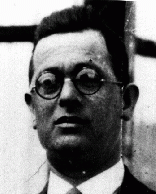
Lucien was the fourth of eight children born to poor Catholic parents in a small town in northwestern France. Lucien began his seminary studies in nearby Rouen at the age of 12. Following two years of military service, he resumed his religious studies in 1922 and was ordained as a priest three years later. He joined the Carmelite religious order in 1931, and became Father Jacques. 1933-39: In 1934 Father Jacques moved to the town of Avon, where he established a boys' school,…
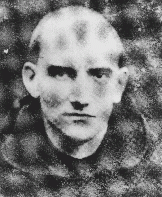
David, known as Dudek by his family and friends, came from Radom, a city with a large Jewish population. David's family was involved in Zionist activities, and David attended a Jewish religious school every afternoon after returning from public school. His father owned a distillery. 1933-39: The Germans invaded Poland on September 1, 1939, and Radom was occupied on September 8, 1939. The Germans were seizing Jewish men to work as slave laborers, and the Birnbaum family knew that they might spare those who…
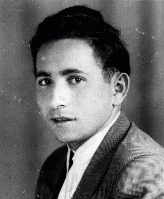
The Nagys were one of several Jewish families in Zagyvapalfalva, a town 45 miles from Budapest. They owned a general store that served the many coal miners in the mountain valley town. As a young man, Lajos served with the Hungarian army in World War I. He then studied in Budapest to be a diplomat, but a 1920 law restricting the number of Jews in certain professions kept him from pursuing his career. 1933-39: Lajos's father passed away. Lajos took over the general store in Zagyvapalfalva with his bride,…
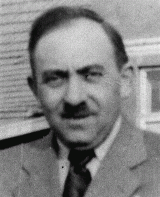
Simcha was one of six children born to a Jewish family in the town of Horochow. His father was a Hebrew teacher. Simcha was an excellent student and after studying at universities in Switzerland, France, and Germany, he became a philosophy professor at the university in Lvov. In the early 1920s he married, and by 1929 he and his wife, Fruma, had two daughters, Tchiya and Shulamit. 1933-39: Simcha was a Zionist and throughout the 1930s he encouraged his Jewish students to emigrate to Palestine [Aliyah…
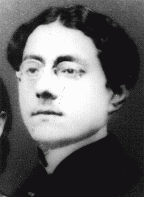
Tchiya was the eldest of two daughters born to a Jewish family in the town of Horochow, 50 miles northeast of Lvov. Her father was a philosophy professor who taught at the university in Lvov, and both of her parents were civic leaders in Horochow. 1933-39: In September 1939 Germany invaded western Poland, and three weeks later the Soviet Union occupied eastern Poland [as a result of the German-Soviet Pact], where Horochow was located. Hordes of refugees fleeing the Germans streamed through the town.…
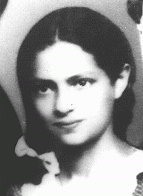
Harry was one of eight children born to a large Jewish family in the Polish town of Lask, 18 miles southwest of Lodz. The Toporeks operated a tannery. Harry attended a public school in the mornings and a religious school in the afternoons. After graduating from secondary school, Harry helped his family in the tannery. 1933-39: On Friday, September 1, 1939, Germany invaded Poland, and by Sunday German planes began bombing Lask. Harry and his family couldn't fight the planes so they fled into the fields.…
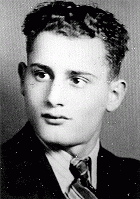
Morris was one of five children born to a Jewish family in the Polish town of Oswiecim, 33 miles west of Cracow [Krakow]. Morris' father sold ladies' undergarments. Morris worked as a jeweler. 1933-39: In September 1939 Germany invaded Poland. Morris's family started to flee eastward but two weeks later the Germans overtook them and they were sent home. When they returned, the Germans were already beating Jews who didn't show them "respect." One day, when German guards came to their house to deport…
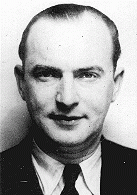
Ruth was the only child of a Jewish family in the German town of Gleiwitz, near the Polish border. She attended public school until the fourth grade, when she transferred to a private Catholic school. Twice a week Ruth attended religious school in the afternoons. One of her favorite pastimes was playing table tennis. 1933-39: Ruth's father was born in Poland and the Nazi government considered him a Polish citizen. In October 1938 the Nazis expelled Polish Jews from Germany, allowing each deportee to leave…
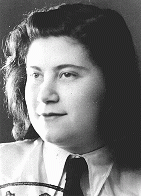
Jozef, also known as Josel, was one of six children born to Yiddish-speaking, religious Jewish parents in the town of Zvolen in central Poland. Jozef became a shoemaker and married a Jewish neighbor. After living in Warsaw for several years, Jozef and his wife, Hannah, settled in the industrial city of Radom near their hometown. There, they raised their three sons. 1933-39: Jozef's three sons finished school and went to work at a young age. Jozef had stopped making shoes himself and was cutting and…
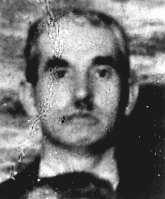
Dawid was the older of two sons born to Jewish parents in Warsaw. His mother supported the family by selling women's clothing. Dawid's father wrote for the Yiddish newspaper Haynt and the journal Literarishe Bleter. The Szpiros lived in the heart of Warsaw's Jewish district, where Dawid and his brother, Shlomo, attended Jewish schools. 1933-39: Dawid graduated from a trade school at the age of 17 and began working as a mechanic. When his father took a job in Argentina in 1937, Dawid and his brother sent…
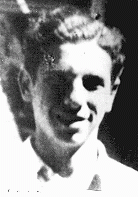
Lea was born in the city of Sombor in northeastern Yugoslavia. When she was 3 years old, her parents divorced and she moved to Vienna with her mother, who taught English and French to Austrian children. Lea enjoyed living in Vienna as a child. 1933-39: Lea returned to Sombor almost every year to visit her mother's relatives. There, she became reacquainted with her younger half-sister, Julia, and her older half-brother, Francis, and would miss them when she returned to Vienna. In 1938, the Germans annexed…
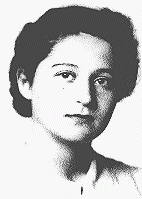
Hela Pinsker and Elimelech Riemer were married in 1928. Two years later the Jewish couple's only child, Edith, was born. The Riemers lived in a comfortable apartment in Berlin, in a building that also housed offices of the Communist Party of Germany. 1933-39: Hitler banned the Communists, so their offices in Edith's building were shut down. When these offices were later broken into, the Gestapo blamed it on "the Jews." Though Edith's family wasn't involved, the Gestapo said that if the culprit was not…
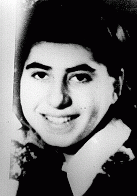
Hela was raised in Dukla, a Polish village near the Czech border. In 1928 she married Elimelech Riemer and the couple settled in Berlin. Two years later, their only child, Edith, was born. The Riemers lived in an apartment building that housed offices of the Communist Party of Germany. 1933-39: Six years ago, in 1933, the Nazis accused Hela's family of breaking into the Communist Party's offices, so they escaped to a Polish town near the German border. A few days ago, just before the German invasion [of…
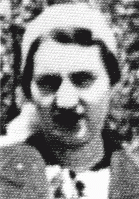
The younger of two children born to Jewish parents, Rachela grew up in Radom, an industrial town located some 60 miles south of Warsaw. One-quarter of the city's 100,000 prewar population was Jewish. Rachela's father was a Zionist and was active in municipal affairs. Her mother did volunteer work. l933-39: Germany invaded Poland on September 1, 1939. On September 5, with the Germans rapidly advancing, Rachela's family sought temporary safety with relatives in Warsaw. They got separated along the way.…
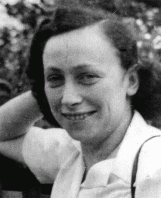
Natan was one of four children born to religious Jewish parents. They lived in an apartment in Cracow's [Krakow] Podgorze district, a predominantly Jewish area on the southern bank of the Vistula River. Natan's father was a shoemaker until 1936, when he became a dealer in billiards equipment. His mother worked as a dressmaker. Natan and his siblings attended Polish public school. 1933-39: When Natan was 13 he built a crystal radio. Late at night, Natan and his father would listen to stations from all over…

Edit, the eldest of two children born to a Jewish family, was raised in Bulboaca, a Romanian village of 2,000 people. Her father was a farmer, and he also worked in the town's railway office. Edit attended public school for four years and then, at age 11, went to the nearby town of Bendery for high school. 1933-39: In Bendery, Edit's parents rented a room for her near the school. At school she studied several foreign languages, but she wasn't taught politics--the teachers said that politics was bad for…
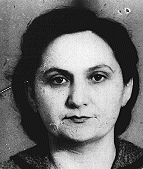
Nenad was the youngest of nine children born to Serbian Orthodox landowners in the eastern Croatian part of Yugoslavia. During World War I the Popovic family was evacuated to Vukovar by the Austro-Hungarian army, which was then at war with Serbia. In 1928 Nenad moved to Belgrade, where he attended Belgrade University, graduating with a law degree in 1932. 1933-39: Nenad's specialty was law related to economics and he found a job in the economic research department of the Yugoslav central bank in Belgrade.…
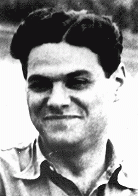
Lila was born to a Jewish family in the largely Jewish city of Stanislawow. The Lam family owned an oil field and refinery, and Lila's father, who was trained as a lawyer, helped to manage the business. When it came time for Lila to begin first grade, her parents decided to have her tutored privately at home rather than have her attend an elementary school. 1933-39: The Jewish holidays were always special times. Although Lila's family wasn't religious, the holidays were wonderful opportunities for her…
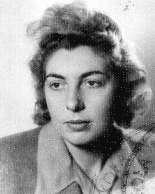
Eszter was one of 11 children born to religious Jewish parents in the small town of Hidegkut in eastern Hungary. During World War I her family became refugees and only three of her brothers and sisters survived the war. After the war, she married Jeno Braun, a refugee from the town of Sighet. They settled in the town of Cristuru-Secuiesc in Romania and had six children. 1933-39: Since Eszter could speak many languages, including Hungarian, Yiddish, Romanian, Italian, French, and Hebrew, she felt at home…
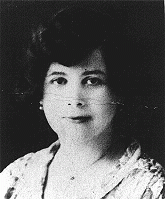
The son of a rabbi, Jeno was raised in the town of Sighet in Transylvania. The region was multi-ethnic, and Jeno grew up in a family that knew Yiddish, Hungarian, Romanian, German and Hebrew. During World War I, when Sighet was near the front, Jeno's family fled to Hungary. There Jeno met Eszter Mendel, whom he married after the war. The couple settled in the town of Cristuru-Secuiesc in Romania. 1933-39: As a jeweler, Jeno is one of only two watchmakers in Cristuru-Secuiesc; the other is a German who…
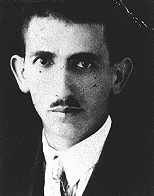
Often known as Sanyi, Sandor was born to religious Jewish parents in a small city in Transylvania, a province that had been ruled by Hungary until 1918. During the 1930s his home city was renamed I.G. Duca in honor of a slain Romanian leader. The fourth of six children, Sandor was also known by his Hebrew name, Yitzhak. The Brauns knew Yiddish, Hungarian, Romanian and Hebrew. 1933-39: Before Sandor's fourth birthday, a babysitter took him on an outing into the forest. When she fell asleep he wandered…
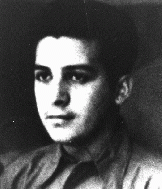
Robert was raised by Hungarian-speaking parents in Kosice, a town in eastern Slovakia with a sizable Jewish community of 7,000. The Grubers were a traditional Jewish family and they observed the Jewish Sabbath, dietary laws, and holidays. Robert's father owned a small jewelry shop. 1933-39: When Robert was 5, Kosice was taken over by the Hungarians, who were led by a dictator named Horthy. He stood on the main street with his parents, watching the soldiers march into town in a victory parade. They were…
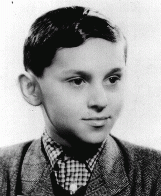
Frederick was born to a Jewish family in the resort city of Baden-Baden, located in Germany's Black Forest region. His father owned a pharmacy there. His parents were proud German citizens and Frederick's upbringing was not religious. He was sent to Switzerland on a student exchange program just before the Nazis came to power in 1933. 1933-39: Back in Germany Frederick worked in a machine factory for two years but was fired for being Jewish. In Frankfurt to look for work, he went to a Mardi Gras festival.…
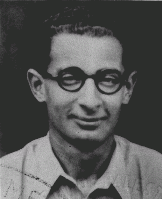
Yakov was the youngest of four children born to a poor religious Jewish family in the village of Matsiov in Ukraine. Six years after Yakov was born, Matsiov was ceded to Poland. When Yakov was 14 his mother died and he had to quit school in order to work. Yakov was a Zionist and hoped to settle in Palestine [Yishuv]. 1933-39: In the Young Pioneers, a Zionist group, Yakov directed the dramatic productions the group put on to raise money for the Zionist cause. It was in the Young Pioneers that he met Chava,…
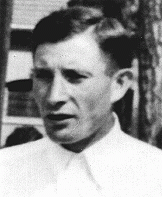
We would like to thank Crown Family Philanthropies, Abe and Ida Cooper Foundation, the Claims Conference, EVZ, and BMF for supporting the ongoing work to create content and resources for the Holocaust Encyclopedia. View the list of donor acknowledgement.